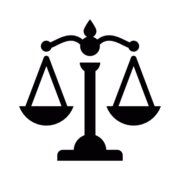Best Landlord & Tenant Lawyers in Arezzo
Share your needs with us, get contacted by law firms.
Free. Takes 2 min.
Free Guide to Hiring a Real Estate Lawyer
List of the best lawyers in Arezzo, Italy
About Landlord & Tenant Law in Arezzo, Italy
Landlord and tenant law in Arezzo, Italy, is a branch of Italian civil law that regulates the rental agreements and obligations between landlords and tenants. Italian law is designed to protect both parties' rights and ensure fair treatment and usage of rental properties. The law applies to various types of leases, including residential, commercial, and agricultural leases. In Arezzo, like the rest of Italy, specific regulations may vary according to local ordinances and interpretations.
Why You May Need a Lawyer
There are several situations in which individuals may require legal assistance regarding landlord and tenant issues in Arezzo:
- Lease Agreement Understanding: Legal help may be required to understand complex clauses and ensure any lease agreement conforms with the law.
- Disputes and Conflicts: If disputes arise regarding maintenance, unpaid rent, or contract breaches, a lawyer can provide mediation or represent your interests in legal proceedings.
- Evictions: Navigating the legal eviction process can be challenging, with specific protocols to follow, making legal advice crucial.
- Modification of Lease Terms: Both parties may need legal assistance when negotiating changes in lease terms to ensure they remain legally compliant.
- Compliance with Local Ordinances: Landlords may need legal advice to ensure property compliance with local housing laws and regulations.
Local Laws Overview
In Arezzo, as part of Italy, landlord and tenant laws are influenced by national laws with local specificities.
- Rent Control: Rents for residential properties are subject to national and local regulations which might impose limits to prevent excessive charges.
- Security Deposits: Typically, a security deposit cannot exceed three months of rent.
- Maintenance and Repairs: Landlords are responsible for ensuring property habitability and conducting necessary repairs unless otherwise specified in the lease.
- Termination of Lease: The procedure for contract termination should comply with the terms stipulated in the agreement and law.
- Rights to Privacy: Tenants have rights to privacy, and landlord entries must respect notice requirements.
Frequently Asked Questions
What are the key responsibilities of a landlord?
Landlords are mainly responsible for maintaining the property's habitability, adhering to legal safety standards, and respecting the tenant's privacy.
How much notice do I need to give to terminate a lease?
It depends on the specific lease agreement, but generally, tenants must give notice as specified in their contract, usually around six months for residential properties.
Can a landlord increase the rent unilaterally?
No, rent increases must comply with the lease terms and relevant laws; often, they are subject to rent control regulations.
What happens if the landlord does not make necessary repairs?
If repairs aren't made, the tenant can legally request them, and in some cases, arrange for them at the landlord's expense or reduce the rent according to the law.
Are there penalties for breaking a lease early?
Penalties depend on the lease terms and reasons for breaking it. Some agreements have clauses that specify penalties or procedures like finding a new tenant.
Can a landlord evict a tenant without notice in Arezzo?
No, landlords must follow a legal eviction process which involves providing notice and, if necessary, obtaining a court order.
What should be included in a rental agreement?
A rental agreement should include terms of tenancy, payment details, any regulations, and the responsibilities of both parties.
Who pays property taxes, the landlord or tenant?
Property taxes are generally the responsibility of the landlord unless otherwise agreed in the lease.
Can tenants sublet without landlord permission?
Subletting typically requires the landlord's consent unless clearly permitted in the rental agreement.
What are the rights of tenants in case of property sale?
Tenants often have the right to continue their current lease terms until the end of the contract even if the property is sold.
Additional Resources
If you seek further information or assistance, consider these organizations and resources:
- Comune di Arezzo: Local government offices can provide assistance or direct you to relevant services handling housing issues.
- Arezzo Bar Association: They can help you find qualified legal professionals specializing in landlord-tenant law.
- Consumer Association Offices: These could provide mediation services and advice on tenant rights.
Next Steps
If you need legal assistance in dealing with landlord and tenant matters in Arezzo, Italy, consider reaching out to a local attorney who specializes in this field. Start by gathering all pertinent information such as your lease agreement, correspondence, and any documents related to your legal matter. Schedule a consultation to discuss your situation and explore your options. Familiarize yourself with your legal rights and obligations under Italian law and be prepared to advocate for yourself effectively.
Lawzana helps you find the best lawyers and law firms in Arezzo through a curated and pre-screened list of qualified legal professionals. Our platform offers rankings and detailed profiles of attorneys and law firms, allowing you to compare based on practice areas, including Landlord & Tenant, experience, and client feedback.
Each profile includes a description of the firm's areas of practice, client reviews, team members and partners, year of establishment, spoken languages, office locations, contact information, social media presence, and any published articles or resources. Most firms on our platform speak English and are experienced in both local and international legal matters.
Get a quote from top-rated law firms in Arezzo, Italy — quickly, securely, and without unnecessary hassle.
Disclaimer:
The information provided on this page is for general informational purposes only and does not constitute legal advice. While we strive to ensure the accuracy and relevance of the content, legal information may change over time, and interpretations of the law can vary. You should always consult with a qualified legal professional for advice specific to your situation.
We disclaim all liability for actions taken or not taken based on the content of this page. If you believe any information is incorrect or outdated, please contact us, and we will review and update it where appropriate.










